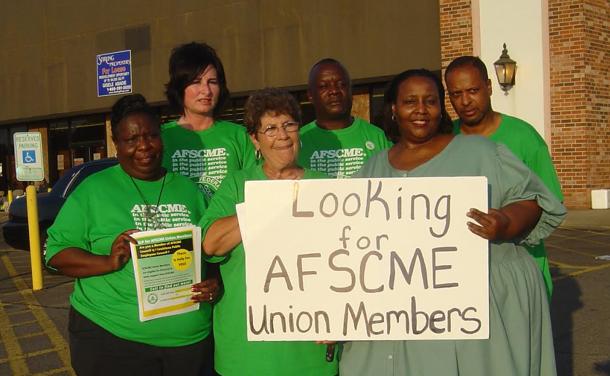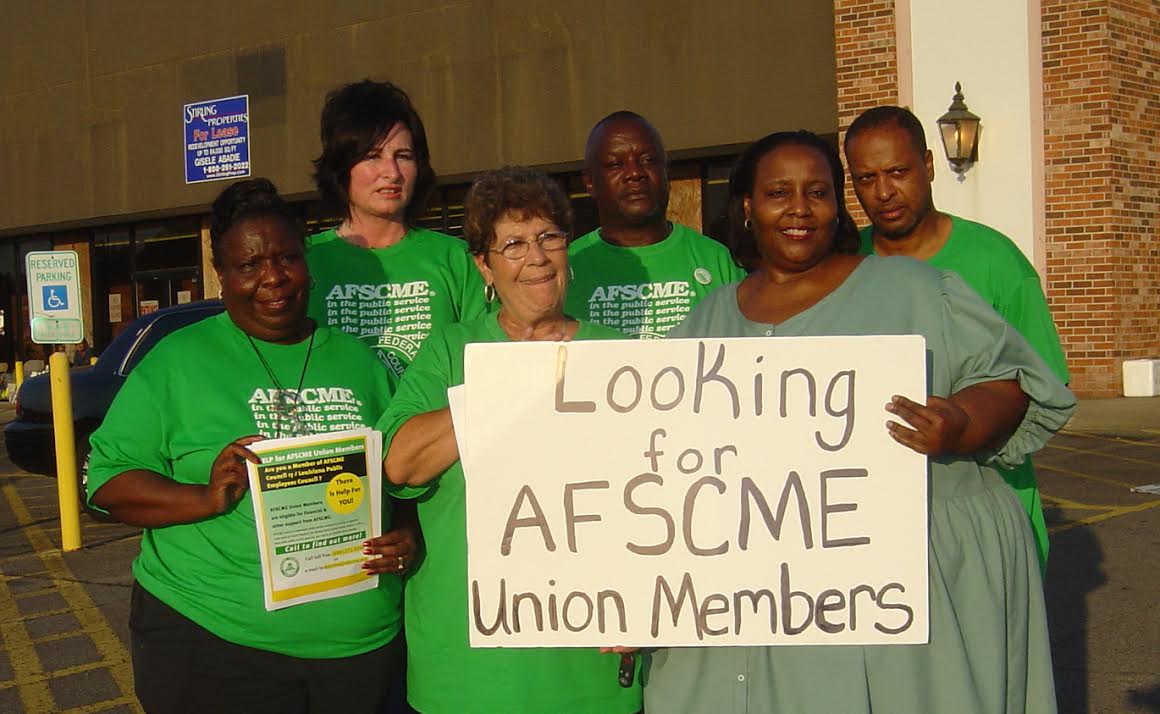
It was one o’clock in the morning, and the staff of Central Louisiana State Hospital had a major emergency on their hands. A week after Hurricane Katrina made landfall in Louisiana on Monday, Aug. 29, 2005, patients and staff from Charity Hospital in New Orleans were arriving at the Pineville hospital by the busloads, seeking refuge and assistance.
“They were psychiatric patients,” remembers Candice Cheney, a psychiatric supervisor at Central Louisiana State Hospital who retired last year. “They as well as their staff were traumatized because they had been locked in the basement of Charity Hospital for a week. They’d hardly eaten anything in all that time. The patients were hostile and afraid. It was total chaos. Our staff received them and assisted them. We worked all night long.”
Cheney was then president of AFSCME Local 3074 (Council 17), which represented the Central Louisiana State Hospital employees. She knew that the staff from Charity Hospital who had remained with their patients and saw them to safety in Pineville, 200 miles away, were also traumatized and separated from their families. Once their basic needs were met, she went around asking them if they were union members. Turned out they were from the same family, AFSCME.
“I told them I was the local president and started assisting them personally,” Cheney remembers. “I contacted my council president and told him we had to take care of our members. That’s when the relief effort started.”
Public workers were essential in preventive measures before Hurricane Katrina, as well as the relief and recovery efforts that followed. Michael Mitchell, a ferry boat captain, transported nearly 1,000 people seeking refuge across the Mississippi River. He worked for seven hours and made 30 trips before his ferry was shut down.
Alfretta Bush, a custodial worker and member of AFSCME Local 1991, remained at Charity Hospital during the storm. “I was scared but I also knew I had to do a job – to help save lives,” she said then. And AFSCME members from across the nation came to the rescue, including a crew of 35 Portland (Oregon) Water Bureau workers who helped rebuild New Orleans’ water system.
Ten years after the storm, we can still say about our AFSCME sisters and brothers: They rose to the challenge.
And we stood by each other. AFSCME developed a comprehensive relief effort to help 3,000-plus members in Louisiana, more than 800 of whom worked in New Orleans. These efforts included:
- Placing $100,000 for Katrina relief into an established fund
- Soliciting donations from members across the nation to help feed and clothe hurricane victims
- Deploying a team of union staff to provide support on the ground
- Starting an “adopt a family” program by which our members could house or fund housing for an AFSCME family
- Helping AFSCME members find jobs and providing them other basic necessities.
Cheney, the retired psychiatric supervisor, was part of these efforts, which went on for months. She remembers feeling proud of her union, especially when she handed out relief checks to her sisters and brothers.
“It was around December 23rd that AFSCME International brought down those checks,” she recalls. “And when I handed out those checks to our members they started crying, they were so grateful. And I was crying with them.
“I let them know that AFSCME was there for them, we were here, and I said I would not stop until I went around to every relief center in my area and until I found every member I possibly could to let them know that our union was there for them. It made me feel fantastic.”
